How to Manage Work Stress Without Relapsing

Understanding the Stress-Relapse Connection
Navigating workplace stress is challenging, particularly for those in recovery from substance abuse. Stress is not only a significant trigger for relapse but also a common factor that can exacerbate addiction. This understanding is essential when considering stress management strategies for recovering individuals, who need to employ effective techniques to maintain their sobriety while handling professional pressures.
Identifying and Coping with Work Stress
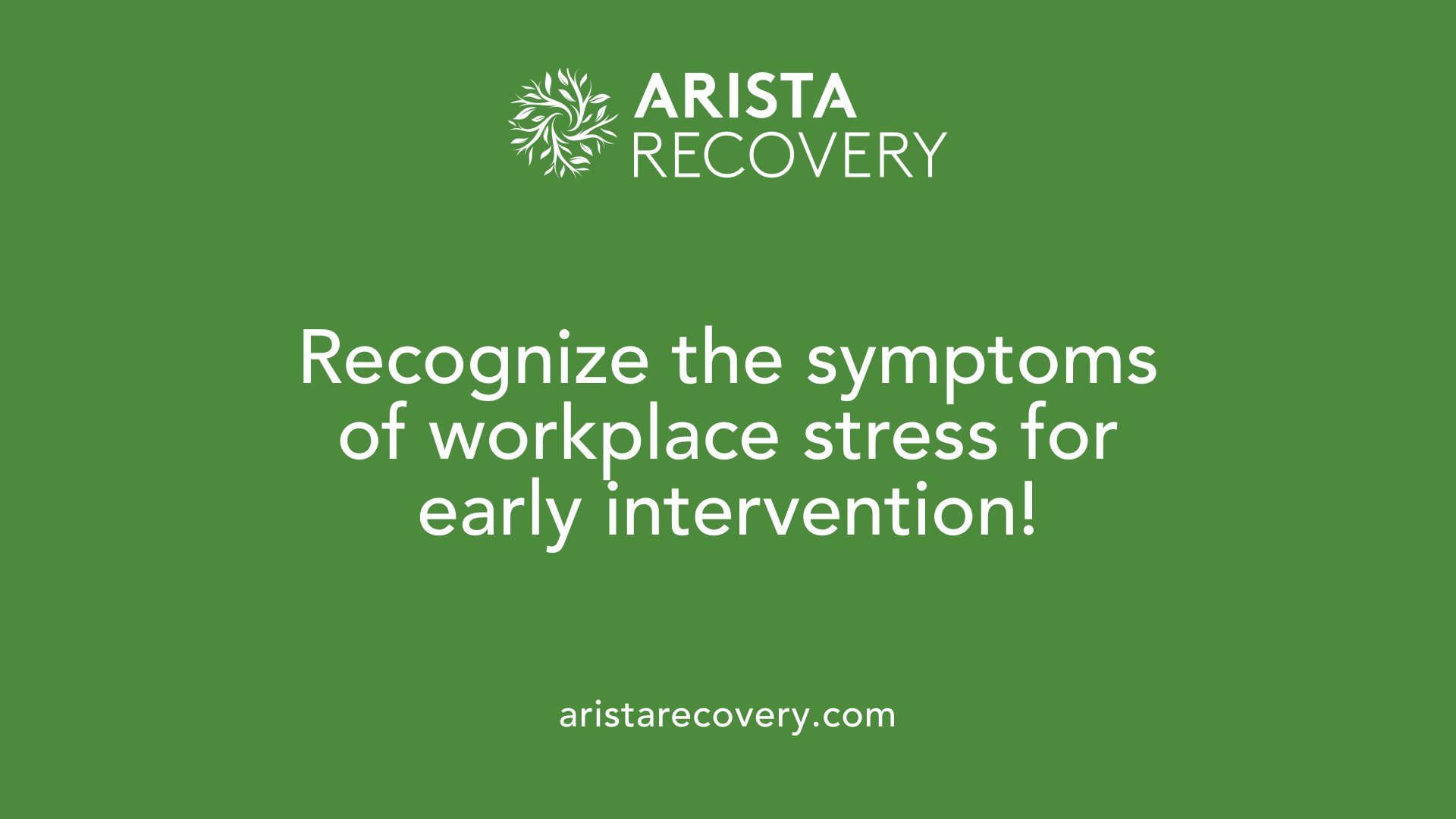
Signs and recognition of work-related stress
Recognizing the signs of workplace stress is essential for effective management. Common physical symptoms include:
Emotional symptoms often manifest as:
Identifying these symptoms early on can help individuals take proactive steps to mitigate their stress. Consequently, acknowledging feelings during stressful times can prevent a downward spiral that may jeopardize recovery efforts.
Effective ways to cope with work stress
Coping with workplace stress involves a variety of strategies that can support both mental well-being and sobriety. Some effective approaches include:
Additionally, finding joy in hobbies and practicing gratitude can shift focus away from stressors, promoting a more balanced perspective.
Importance of identifying stressors
Understanding the specific stressors affecting work life is crucial for avoiding burnout and managing feelings of overwhelm. By identifying what causes stress—whether it’s tight deadlines or interpersonal conflicts—individuals can tailor their coping strategies more effectively. This proactive approach not only aids in preventing relapse but also empowers individuals to reclaim control in their work and personal lives. Working on self-care routines, such as staying hydrated, nourishing the body, and ensuring adequate sleep, further supports resilience against workplace stress.
Burning Bright without Burning Out
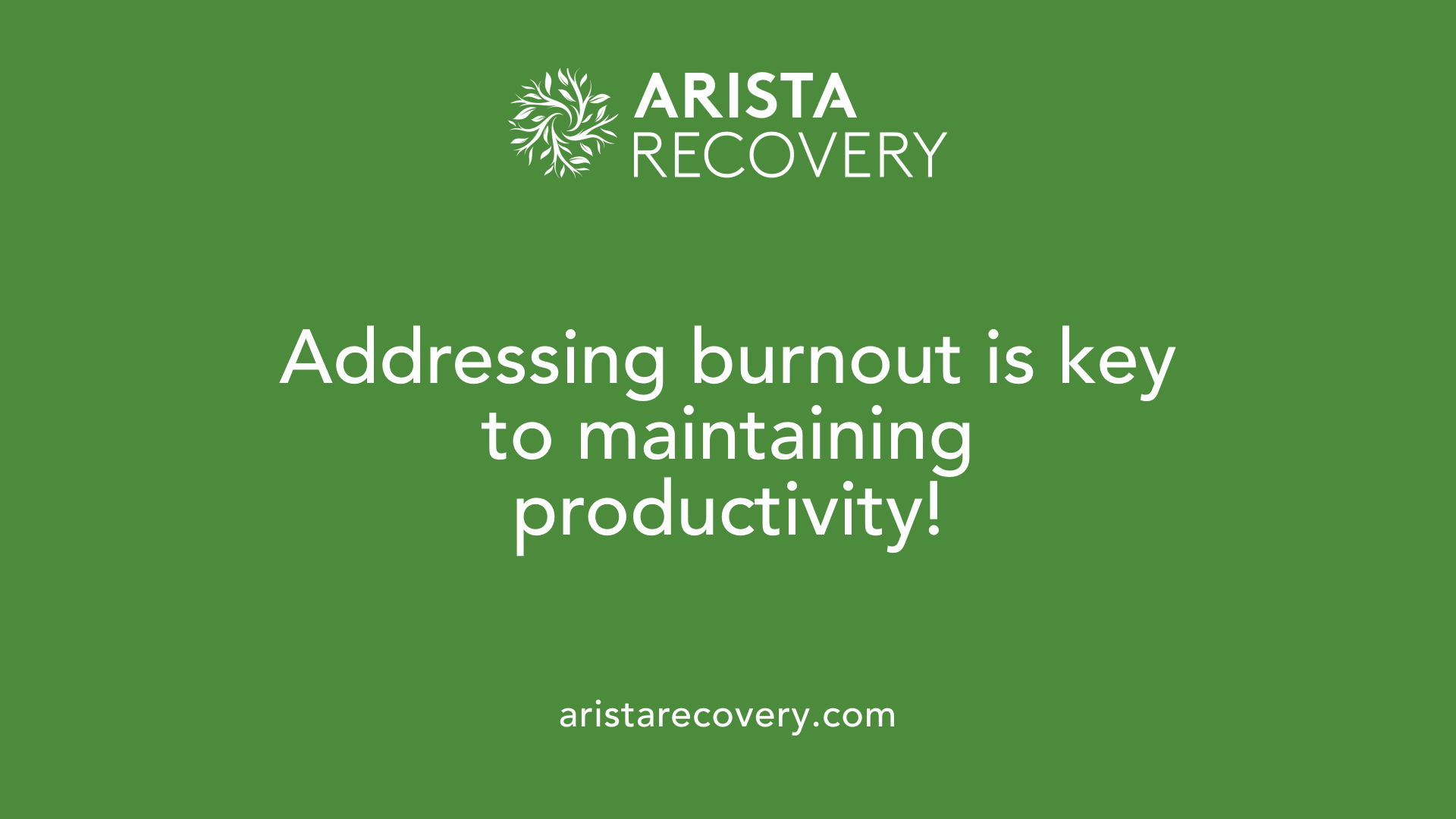
What role does burnout play in work-related stress?
Burnout is a critical factor contributing to work-related stress. It manifests as both physical and emotional exhaustion, leaving individuals feeling drained and disconnected. Those experiencing burnout may find themselves questioning the value of their work, leading to lack of energy and struggles with concentration. These symptoms not only diminish job performance but can also increase the risk of serious emotional conditions such as depression.
Common causes of burnout include excessive workloads, unclear expectations, and a lack of support from colleagues and management. Ignoring these signs can result in severe consequences, including negative moods and long-term health issues, which makes it essential to address burnout promptly.
Ways to prevent and manage burnout
To effectively prevent and manage burnout, consider implementing a few practical strategies:
By integrating these strategies, individuals can reduce the risk of burnout and maintain productivity in a healthy, sustainable manner.
Coping Mechanisms Without Substances
What coping mechanisms can help handle work-related stress without substances?
To handle work-related stress without substances, individuals can implement various coping mechanisms that focus on mental and emotional well-being. Here are some effective strategies:
How can avoiding unhealthy stress responses contribute to recovery?
Avoiding unhealthy stress responses is vital for maintaining sobriety. Recognizing early signs of stress can prevent spiraling into unhealthy habits. Here are ways to manage stress without resorting to substances:
What role does a support network play in managing stress?
Building a solid support network is essential in effectively managing stress. Key components include:
In summary, adopting these strategies can significantly enhance stress management, reducing the chances of relapse and promoting overall well-being.
The Vital Link: Stress Management and Relapse Prevention
How can stress management prevent relapse for someone in addiction recovery?
Stress plays a significant role in addiction recovery, often acting as a catalyst for relapse. Individuals recovering from substance use disorders may face various stressors that can compel them to seek solace in old habits. Therefore, effective stress management is vital in this journey.
Recognizing and addressing stress can help individuals develop coping strategies necessary to navigate triggers and emotional turbulence. Key tactics include:
Moreover, early recognition of potential relapse signs, such as isolation or nostalgic thoughts about substance use, can lead to intervention before a crisis escalates. Being aware of one’s emotional state and daily fluctuations can empower individuals to seek assistance when needed, thus preventing a return to substance use.
In conclusion, a tailored approach encompassing emotional stability, proactive coping techniques, and solid support systems significantly boosts the chances of a successful recovery.
Mindfulness and Meditation: Tools for Stress Relief
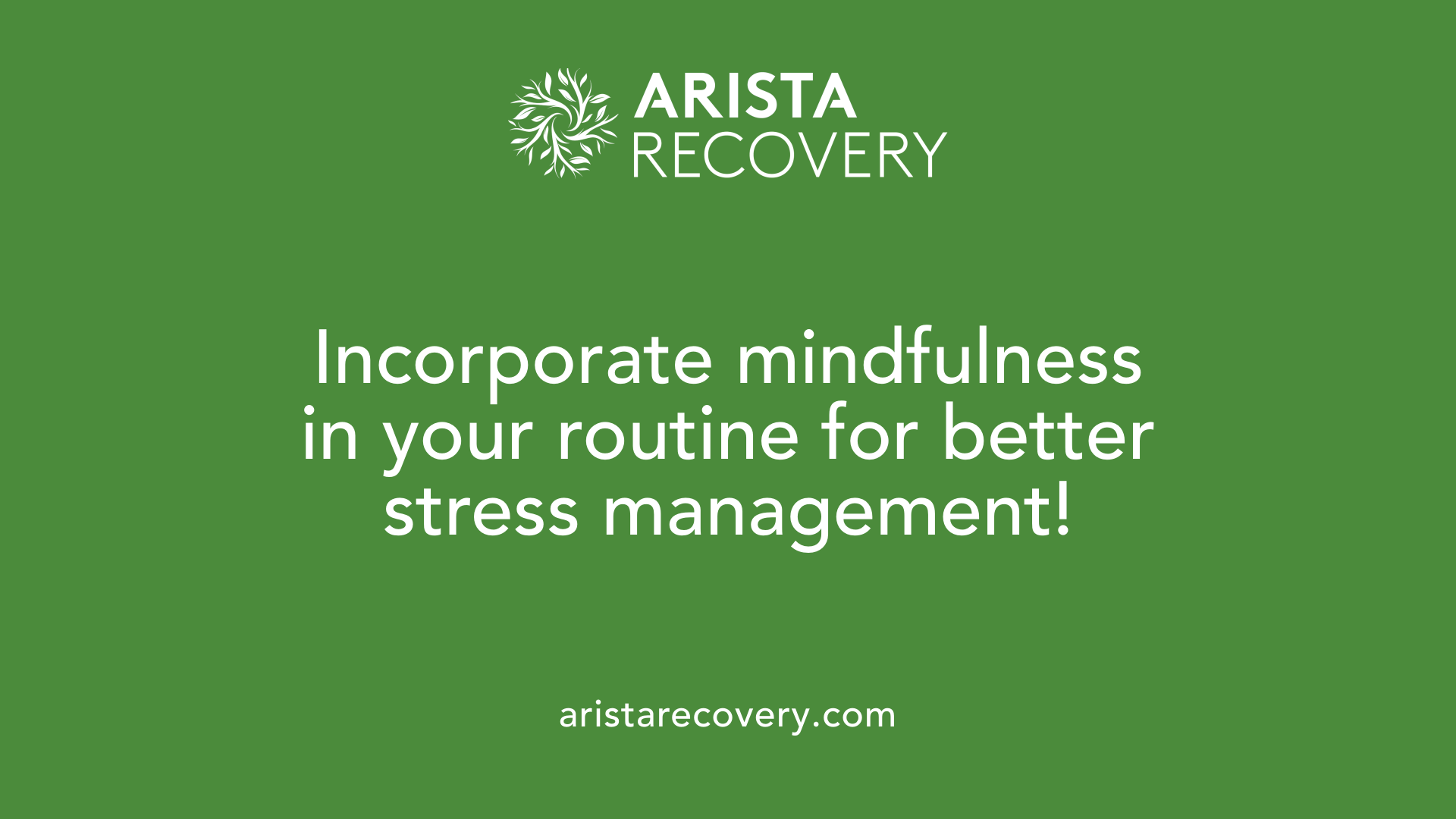
Benefits of mindfulness and meditation
Mindfulness and meditation are proven techniques that help reduce stress and anxiety, which are significant triggers for relapse during recovery. These practices foster an awareness of the present moment, allowing individuals to acknowledge their thoughts and emotions without judgment. This conscious recognition aids in breaking the cycle of reactive responses to stressors, enabling a more controlled and thoughtful approach to stress management.
Integrating these practices into daily routine
To reap the full benefits of mindfulness and meditation, integrating them into daily routines is essential. Even short meditative breaks or mindfulness exercises can provide moments of calm amidst a hectic day. Simple practices like deep breathing, progressive muscle relaxation, or visualizing a peaceful place can be incorporated into work breaks or morning routines, enhancing both mental clarity and emotional resilience.
Impact on mental clarity and emotional balance
Regular practice of mindfulness and meditation significantly enhances mental clarity and fosters emotional balance. These benefits are vital for those in recovery as they can help mitigate feelings of anxiety and overwhelm. Optimizing one’s mind fosters a more positive outlook and improved mood, supporting overall well-being and the journey toward sustained sobriety.
Creating Healthy Habits for Sustainable Sobriety
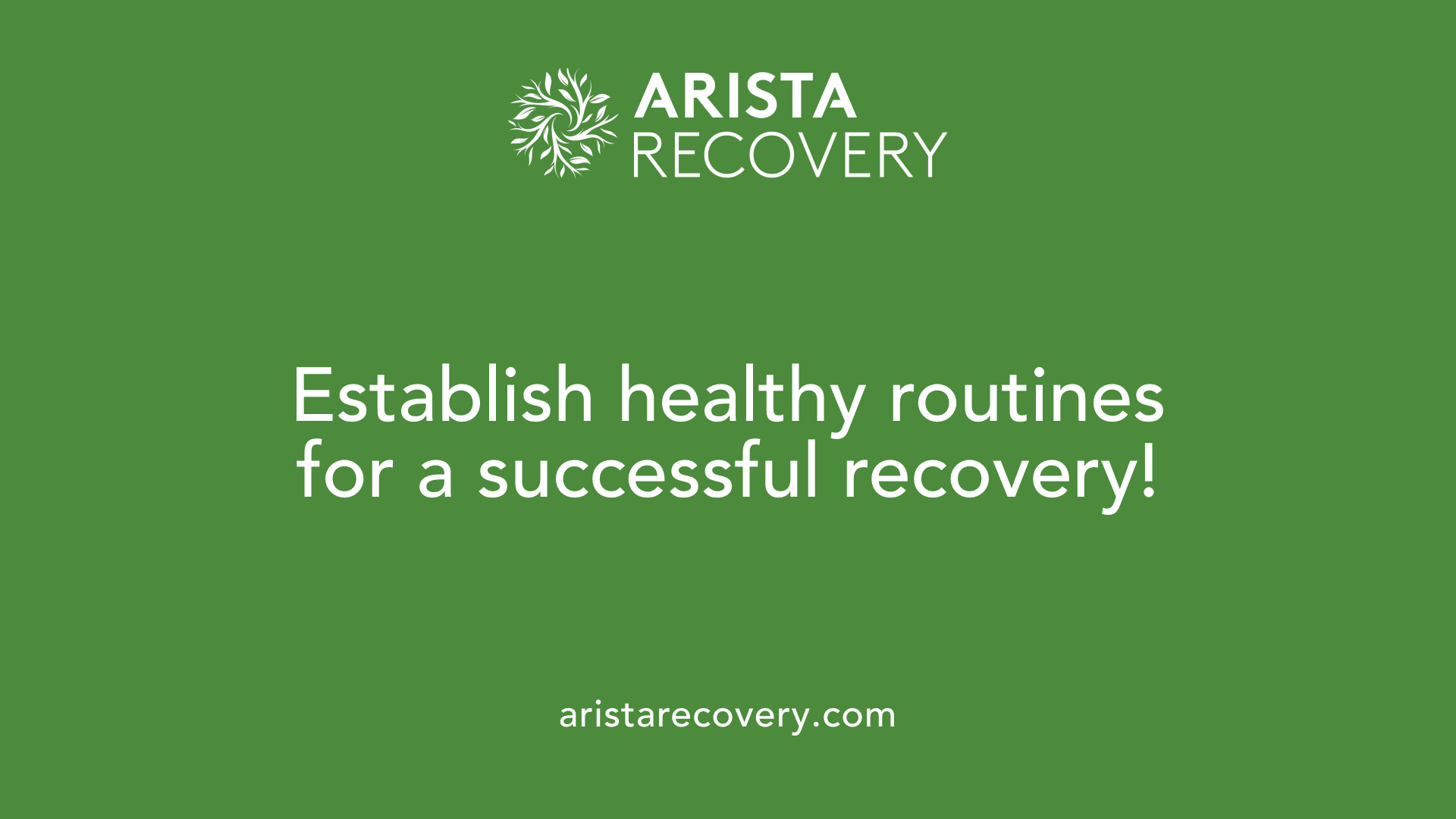
Building Daily Routines for Stress Management
Creating a structured daily routine can significantly help manage stress and support sobriety. Key components of a healthy routine include regular exercise, balanced nutrition, and sufficient sleep. Engaging in physical activities, even if just for a short walk, releases endorphins that boost mood and promote relaxation.
Incorporating mindfulness practices, such as meditation or deep-breathing exercises, into daily life can also be beneficial. These techniques help individuals respond to stressors thoughtfully rather than reacting impulsively, fostering emotional balance.
Establishing Boundaries Between Work and Personal Life
Setting clear boundaries between work and personal life is crucial to prevent burnout and reduce stress. Ensuring that work hours are respected and making time for self-care activities can help maintain mental clarity. Techniques such as effective planning and prioritization allow individuals to break tasks into manageable steps, so they do not feel overwhelmed.
Communicating effectively with colleagues and supervisors about workload and stress levels can further aid in maintaining these boundaries.
Role of Physical Well-Being in Stress Management
Physical well-being plays an essential role in stress management and maintaining recovery. Proper nutrition and hydration can combat fatigue and irritability, while adequate sleep is crucial for cognitive function and emotional regulation. Feeling physically well can enhance one’s resilience to stress and make coping strategies more effective, reinforcing the overall recovery journey.
Seeking and Providing Support during Stressful Times
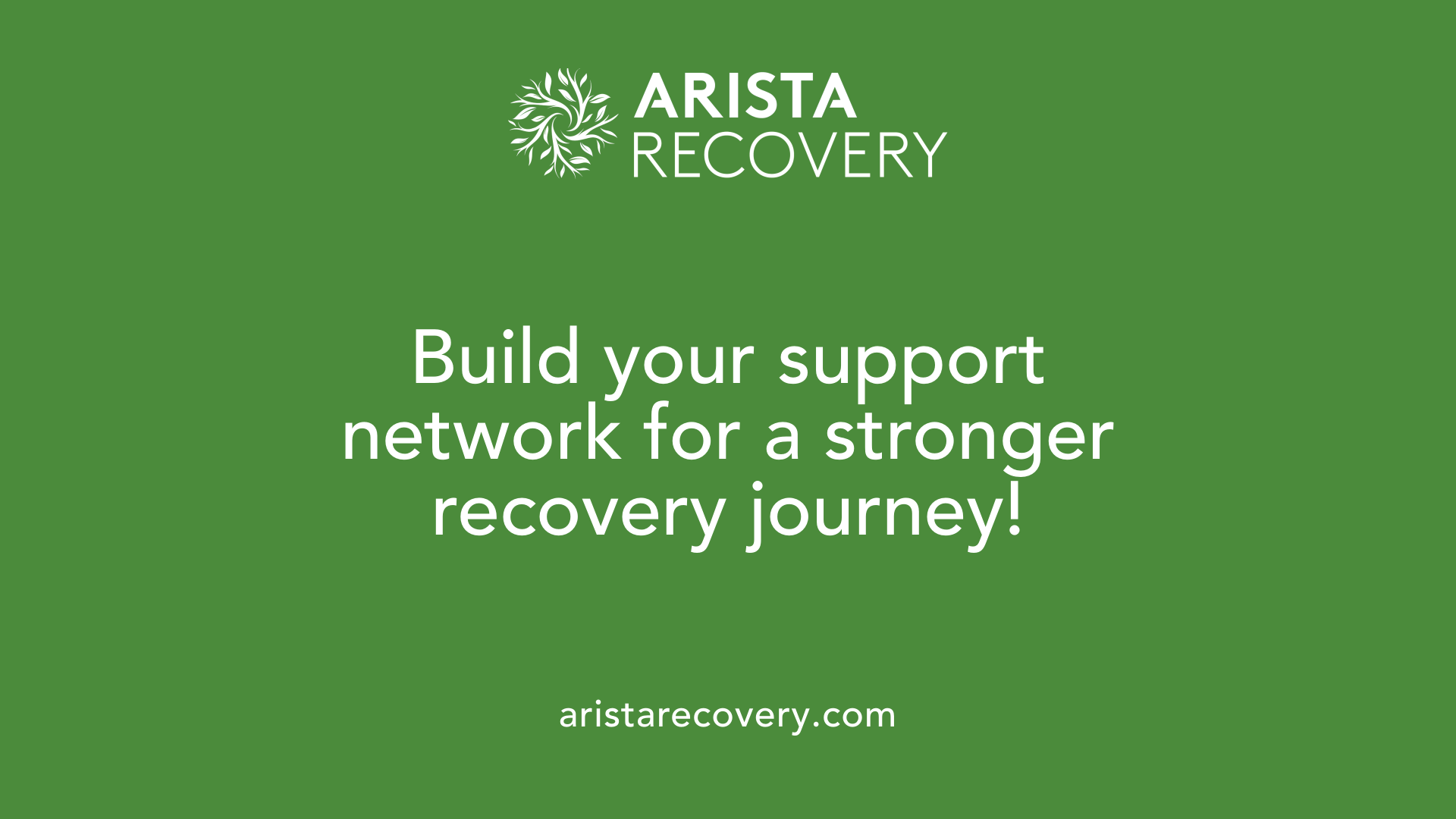
Importance of Social Connections
Building a robust network of social connections is crucial for managing stress, especially for those in recovery from substance abuse. Friends, family, and supportive colleagues can provide emotional support, reducing feelings of isolation and loneliness. Engaging with others who understand the challenges of recovery can create a sense of belonging, which is vital in stressful periods.
Participating in Community or Peer Support Groups
Community and peer support groups offer a structured environment for sharing experiences and strategies. These groups facilitate honest conversations about stress and recovery, helping individuals feel less alone. Many recovering individuals find that connecting with peers who have faced similar struggles helps foster accountability and encourages healthy coping mechanisms.
Strategies for Reaching Out When Stressed
It's essential to practice vulnerability by reaching out when feeling overwhelmed. Effective strategies include scheduling regular check-ins with friends or family members and using technology to connect virtually. When stress arises, initiating a conversation or asking for help can alleviate burdens. Engaging in supportive community activities, such as volunteering, can also shift focus away from personal stresses, nurturing a sense of purpose and satisfaction.
Navigating Stress for a Healthier Career and Life
By embracing effective stress management techniques, recovering individuals can avert potential relapses and promote a healthier work-life balance. Recognizing stressors, building supportive networks, and integrating mindfulness and self-care into daily routines are vital steps in managing work stress without resorting to substances. Ultimately, fostering resilience and relying on constructive coping mechanisms can pave the way for sustained success and sobriety in the face of life's ongoing challenges.
References
When mental health challenges and addiction intersect, it can feel isolating. At Arista, we offer compassionate, evidence-based, and trauma-informed care to help you heal, grow, and move forward.
You’re not alone in this.
When mental health challenges and addiction intersect, it can feel isolating. At Arista, we offer compassionate, evidence-based, and trauma-informed care to help you heal, grow, and move forward.
Support that moves with you.
You’ve taken a brave first step. At Arista Recovery, we’re here to help you continue with best-in-class care designed for long-term healing and support.
.webp)






